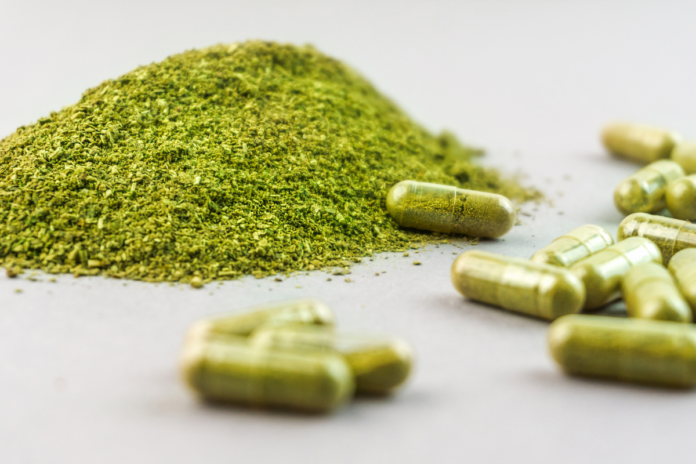Many people in the US and around the world are suffering from one or more mental health issues. An estimated 31% of US adults experience an anxiety disorder at some point in their life. Many users claim that kratom has the potential to alleviate the effects of depression and anxiety. It also helps regulate mood and boost energy levels.
The consumption of kratom in the US started in the early 2000s, and there was no turning back. As the internet grew, this amazing herb became a part of many households. Kratom was available online, and many kratom vendors started selling it in the form of powder, kratom capsules, and shots according to its benefits.
In this article, we will talk about how kratom use and mental health are linked, why people actually take kratom, and other relevant information.
Why Do People Take Kratom?
People take kratom for various reasons, including its potential effects on mental health. Understanding why people turn to kratom involves exploring its perceived benefits in alleviating mental health issues.
1. Pain Management and Anxiety Relief
One of the primary reasons individuals consume kratom is for its reported analgesic properties and anxiety-relieving effects. Some users claim that kratom helps in managing chronic pain and mitigating symptoms of anxiety disorders. The plant contains alkaloids, such as mitragynine and 7-hydroxymitragynine, which interact with opioid receptors, potentially providing pain relief and a sense of calm.
2. Energy and Focus
Some users consume kratom to enhance energy levels and improve focus. Certain strains are believed to have stimulating effects, making them appealing to those looking for a natural solution to combat fatigue or increase productivity. However, it’s essential to recognize the potential risks associated with kratom, such as dependency and withdrawal symptoms. White kratom strains are known to get a boost in energy and improve focus. Happy Go Leafy provides the best-quality white strains in capsules, powder, and shots.
3. Mood Enhancement and Euphoria
Kratom is often associated with mood enhancement and euphoria. Individuals seeking an alternative to conventional antidepressants may turn to kratom for its potential mood-boosting effects. However, it’s crucial to note that the scientific understanding of kratom’s impact on mood and mental health is still evolving, and more research is needed to validate these claims.
4. Self-medication and Coping Mechanism
In some cases, individuals may turn to kratom as a form of self-medication. Those struggling with mental health issues, such as depression or PTSD, might seek relief through the plant’s psychoactive properties.
People take kratom for a variety of reasons related to mental health, seeking relief from pain, anxiety, and mood disorders. As with any substance, it’s crucial for individuals to make informed decisions and consult healthcare professionals when addressing mental health concerns. If you are a beginner, make sure you purchase kratom from a reputable kratom vendor. Adulterated kratom products can be hazardous to your health. You can check this article from Sandiego Magazine to help you select the best kratom vendors to get top-quality products.
Kratom and Mental Health
Mental health and kratom are often linked, as many people consume kratom to ease many conditions. Users often report various effects, including mood enhancement, stress relief, and even cognitive benefits. Here is how kratom influences mental health.
Kratom’s Influence on Mood
Kratom has sparked interest for its potential impact on mental health. Many users have reported mood-enhancing effects, with relief from symptoms of anxiety and depression. The active compounds mitragynine and 7-hydroxymitragynine interact with opioid receptors, potentially influencing emotional well-being.
Anxiolytic Properties
Anecdotal evidence suggests that kratom may have anxiolytic properties, providing a sense of relaxation and calmness. Some users find that it helps alleviate stress and anxiety, contributing to an improved overall mental state. However, the scientific understanding of these effects is still in its early stages, necessitating further research.
Potential Cognitive Benefits
Beyond mood enhancement, some users claim cognitive benefits from kratom use. Improved focus, increased alertness, and enhanced cognitive function are reported effects, although the mechanisms behind these outcomes remain unclear. Research exploring these cognitive aspects is essential to comprehend better how kratom may positively influence mental processes.
Varieties and Strains
Kratom’s diverse strains and varieties contribute to its complex interaction with mental health. Users often experiment with different strains to find the one that best suits their needs. Some strains may be more energizing, while others are touted for their relaxing properties, allowing individuals to tailor their kratom experience based on desired mental health effects.
Individual Experiences and Responses
Individual responses to kratom vary, highlighting the importance of personalized experiences. Factors such as dosage, frequency of use, and an individual’s unique physiology can all contribute to differing outcomes. Exploring kratom for mental health should be approached with a mindset of self-awareness and a willingness to adapt based on individual responses.
Conclusion: How Kratom Helps With Mental Health?
This leads to the end of this blog, where we talked about kratom use and mental health. Many seasoned kratom users claim that it helps in relieving anxiety and uplifting mood. If a person is facing anxiety or sleep disorder, red vein strains can help relax and calm the mind. Kratom has potential anxiolytic properties, which provide a sense of calmness.
Kratom has a variety of strains that contribute to its interaction with mental health. Some strains are more energizing, while others have relaxing properties. Users can choose the strain according to their preferences.










